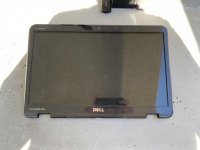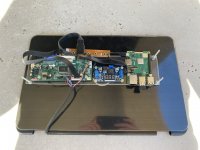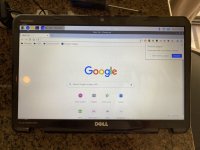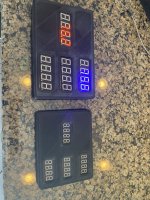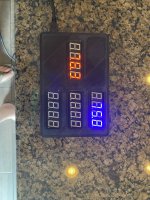Bryan Mayland
TVWBB Hall of Fame
SUCCESS! WAIT A MINUTE did you find the LEDs with the decimal that were full sized or are those the minis? Oh they are the minis aren't they  I got really excited.
I got really excited.
Nice work getting it up and running and you've passed the test (of asking me to explain everything step by step for things you want to change) so just let me know if you have anything else you want to change and need some guidance.
Nice work getting it up and running and you've passed the test (of asking me to explain everything step by step for things you want to change) so just let me know if you have anything else you want to change and need some guidance.

